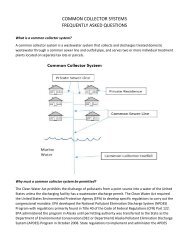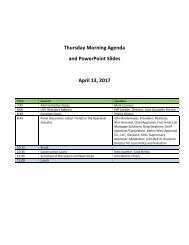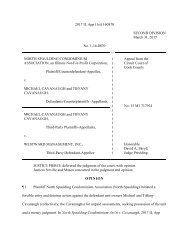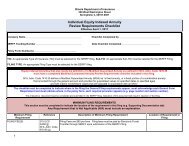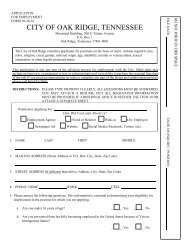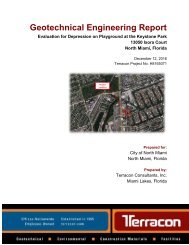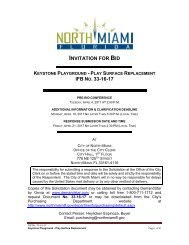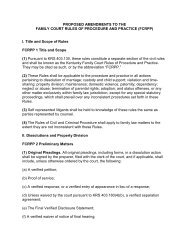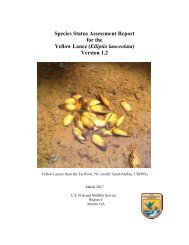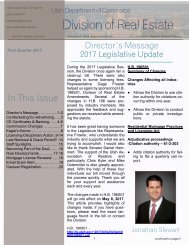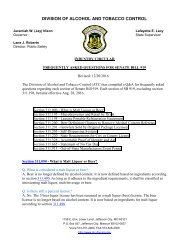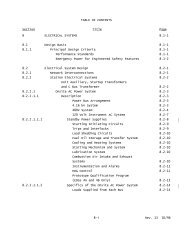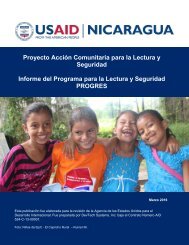EVALUATION
PA00MFK3
PA00MFK3
Create successful ePaper yourself
Turn your PDF publications into a flip-book with our unique Google optimized e-Paper software.
Norte, (7) Tawi‐Tawi in the Sulu Archipelago, and (8) Verde Island Passage. They represent<br />
all six marine bioregions of the Philippines and were selected due to their extremely high<br />
need for marine biodiversity conservation. These areas are marine ecosystem “hotspots” in<br />
the Philippines that mirror the common issues impacting capture fisheries locally and<br />
nationally (See Annex 1).<br />
The ECOFISH project is being implemented in partnership with the Department of<br />
Agriculture‐Bureau of Fisheries and Aquatic Resources (DA‐BFAR) and the local government<br />
units (LGUs) in the project sites.<br />
III.<br />
Description of the Project to be evaluated – ECOFISH<br />
Context. The fisheries sector is enormously important to the economy of the Philippines<br />
particularly to the poorer and more marginalized citizens whose livelihoods depend on smallscale<br />
fisheries. Despite this importance, two‐thirds of the 12 major fishing bays in the country<br />
are already overfished, and catch rates of reef fisheries are among the lowest in the world.<br />
Excessive fishing has resulted in the decrease in average sizes of fishes, shifts in species<br />
composition, and steep declines in abundance of valuable species. While the Philippines<br />
currently ranks 8 th globally in total fisheries production, the economic and food security<br />
benefits derived from this sector are only a fraction of what they could be if managed<br />
sustainably. At the national level, the excess capacity of the fishing sector must be addressed by<br />
reducing the number of fishing licenses; combating illegal, unregulated, and underreported<br />
(IUU) fishing; and addressing short‐term negative impacts on food security through strategic<br />
fish imports and other protein sources. At the local level, improved management of municipal<br />
waters must be addressed through the individual and collective efforts of local governments,<br />
communities, and assisting organizations. Climate change also poses an increasing threat to<br />
marine biodiversity.<br />
Program Objective. The main objective of the ECOFISH Project is to improve the<br />
management of important coastal and marine resources and associated ecosystems that<br />
support local economies. It will conserve biological diversity, enhance ecosystem productivity<br />
and restore profitability of fisheries in project sites using ecosystem approach to fisheries<br />
management (EAFM) as a cornerstone of improved social, economic and environmental<br />
benefits. The application of EAFM principles and practices is a proven approach for reversing<br />
the decline of fish biomass in municipal waters and building community resilience. EAFM aims<br />
to manage fisheries at ecosystem scales rather than the scales defined by jurisdictional<br />
boundaries. Effective collaborative governance arrangements for EAFM provide the multiple<br />
benefits of improving ecosystem management, reducing the unit costs of management, and<br />
making the establishment of sustainable financing mechanisms and public‐private‐partnerships<br />
(PPPs) more feasible and attractive to investors.<br />
Project Approach. ECOFISH builds on the many successful elements of its precursor<br />
project, the Fisheries Improved for Sustainable Harvest (FISH) Project. ECOFISH, however,<br />
raises the bar by aiming to expand the application of EAFM at additional sites and to put in<br />
place the elements for institutionalizing EAFM nationally through innovative approaches and<br />
partnerships. ECOFISH project’s overall programmatic approach is designed to achieve the<br />
next critical phase in coastal and fisheries resource management and trajectory—to advance<br />
Annex 1 - 2



